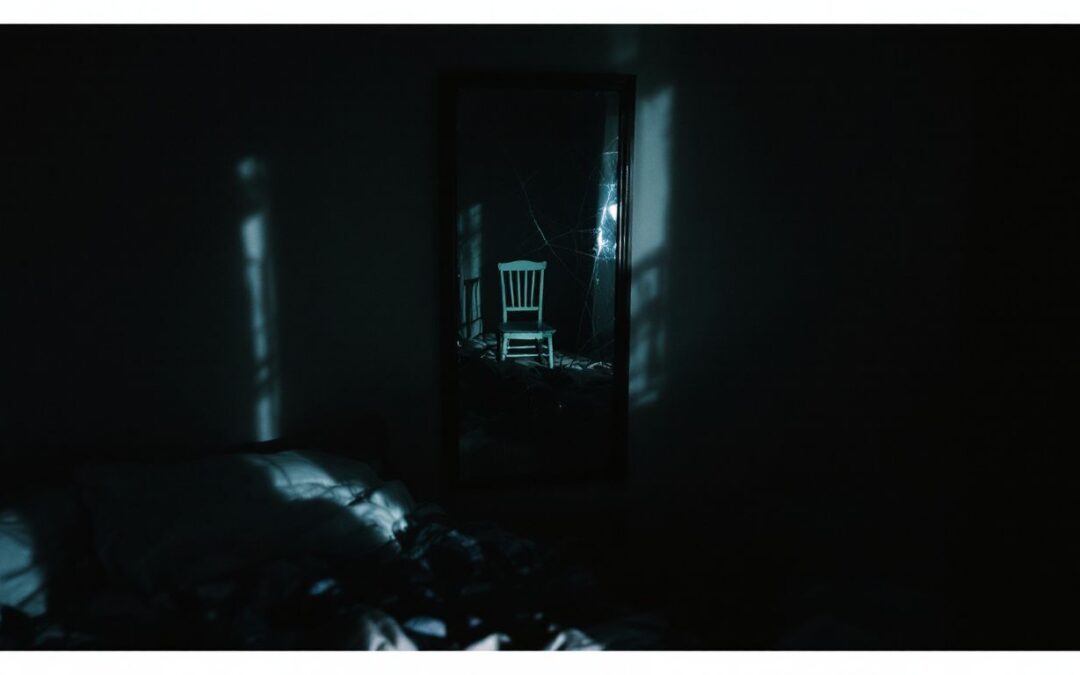Many people wake up feeling scared after dreaming about sexual assault. Dreams like these are more common than you might think. This article will help you understand what these dreams may mean and how to deal with them.
Keep reading to learn more!
Key Takeaways
- Dreams about sexual assault can show deep fears or past hurts. They don’t mean you want it to happen, but might show feelings of powerlessness.
- These dreams often cause stress and fear, making people feel unsafe. Talking to a therapist or joining a support group can help.
- There are ways to cope with these dreams like therapy, writing in a journal, and practicing relaxation techniques to improve sleep and reduce stress.
Interpreting Dreams of Sexual Assault

When we dream about sexual assault, it may signify underlying fears or anxieties that have been repressed in our subconscious. These dreams could also reflect emotional distress and the need for healing through psychological support and coping strategies.
Symbolism and Subconscious Messages
Dreams about sexual assault can be scary. They often show deep fears or past traumas you might not think about in your day-to-day life. These dreams don’t mean you want these things to happen.
Instead, they could mean you’re feeling powerless or afraid in some part of your life. It’s like your brain is using a strong image—sexual assault—to tell you something about yourself.
People also have these dreams because of things they see in movies or hear in stories. So, it’s not always about what has happened to them. It could just be the brain making a story from what it sees around it.
This shows how our minds work with both our own experiences and the stuff we take in from the world to send us messages when we sleep.
Psychological Impact and Emotional Distress
Dreams about sexual assault can leave a big mark on our feelings. They might cause stress, fear, and sadness. These dreams often bring up memories of past traumas or fears from our subconscious.
This can make us feel unsafe, even in places where we usually feel secure.
To deal with these tough emotions, some people might need to talk to therapists or look for support groups. It’s also common for folks to have trouble sleeping after such stressful dreams.
Taking care of mental health becomes key after experiencing traumatic dreams like these.
Coping Strategies for Traumatic Dreams
Coping with traumatic dreams can be challenging, but there are effective strategies to help manage the emotional impact. Seeking psychological support and therapy options can provide essential tools for processing and healing from these distressing experiences.
Psychological Support and Therapy Options
Dreams about sexual assault can leave you feeling upset and confused. It’s vital to know there are ways to heal and feel better.
Here are some steps you can take:
- Talk to a therapist. They are trained to help with bad dreams and feelings.
- Join a support group. Meeting others who have had the same dreams can make you feel less alone.
- Practice relaxation techniques like deep breathing or meditation. These can calm your mind.
- Write in a journal about your dreams and feelings. This helps get your thoughts out.
- Set a regular sleep schedule to improve your sleep quality.
- Limit screen time before bed since screens can disrupt sleep.
- Read books on dream interpretation to understand your dreams better.
- Use positive affirmations before sleeping to encourage good thoughts.
- Exercise during the day can help reduce stress and improve sleep.
- Avoid caffeine and heavy meals close to bedtime as they can keep you awake.
These steps offer paths toward healing after traumatic dreams, providing support for both mental health and emotional healing through therapy, self-care, and community support.
Conclusion
Sexual assault in dreams can be distressing and cause emotional turmoil. It may represent deeper psychological issues or past traumas. Seeking therapy or support can help in coping with the impact of these dreams.
Understanding and addressing the emotions from these dreams is important for healing and recovery. The symbolism of such dreams should not be ignored, and it’s essential to prioritize mental well-being when processing these experiences.
FAQs
1. What does it mean if I dream about sexual assault?
Dreaming about sexual assault can be really confusing and scary. It might show feelings of fear, powerlessness, or anxiety in your waking life. It’s not always literal; sometimes it reflects inner struggles or unresolved emotions.
2. Are these dreams common?
Yes, many people have dreams like this at some point. These dreams may happen during stressful times or when you feel threatened in real life. They often pop up when you’re dealing with tough situations.
3. Should I be worried if I have these dreams?
Not necessarily! While they can be distressing, dreaming about sexual assault doesn’t mean something bad will happen to you. Think of them as signals from your mind that there are things you need to address—like fears or worries.
4. How can I cope with these kinds of dreams?
Talking about your feelings can help a lot! Sharing your experiences with friends or a therapist might ease the burden and provide clarity on what those dreams mean for you personally—because everyone’s different, right?





